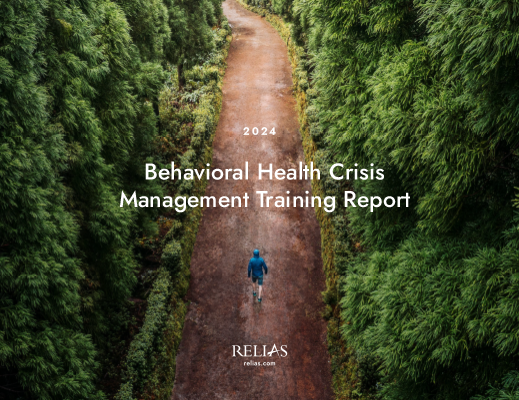Organizations that provide services to people with intellectual and developmental disabilities (IDD) are often built on a culture of caring and compassion. But that culture can erode if compassion fatigue sets in. Your Direct Support Professionals (DSPs) are especially susceptible to compassion fatigue.
Providing direct support can be tough work. Many DSPs spend their days meeting others’ needs, and then go home and have to focus on meeting the needs of their children, parents, significant others, and friends. All of those demands on their time and attention can lead to compassion fatigue.
Compassion fatigue occurs when a person is physically, emotionally, and spiritually exhausted from caring for others. To some degree, it hits almost everyone who cares for people who are suffering or who have experienced trauma. Compassion fatigue is often cumulative. A DSP may be great at their job for years, and then hit a point where they simply have no more to give.
Compassion fatigue is not only bad for your DSPs; it can also hurt the people they care for. Common signs of compassion fatigue and burnout include irritability and lack of motivation. It’s hard to care all of the time! And when the ability to care runs low, the quality of services will suffer. This may manifest as small ways, like being a little slower in responding to the needs of the people they serve. Or it can manifest in big ways, like abusive language, failure to show up on time for shifts, and failure to report or take necessary action when problems arise.
Compassion fatigue can lead to your most caring and committed DSPs leaving the job. So being on the lookout for compassion fatigue and providing your staff with resources to address it is one way to improve company culture, service quality, and DSP retention.
Recognizing compassion fatigue in your DSP staff
Have you ever had a DSP on your staff who started out as a rock star, but who over time became less caring and less reliable? Often, managers respond to such changes in performance with reprimands. Instead, be on the lookout for signs of compassion fatigue, such as:
- Emotional difficulties — anger, irritability, anxiety, increased cynicism, hypersensitivity, insensitivity, or difficult feeling empathy
- Mental changes — reduced sense of accomplishment or meaning in work, preoccupation or disengagement in social situations, or social isolation
- Physical troubles – sleep difficulties or frequent headaches or illnesses
When questioning an employee in order to determine if these signs are present, be non-confrontational and non-judgmental. The DSP may already be feeling guilt or shame over their decline in empathy, and they may not recognize what is causing them to feel this way.
Supporting employee wellness
The best treatment for compassion fatigue is self-care. You can encourage a burnt-out DSP to get adequate sleep, exercise regularly, and eat a healthy diet.
But beyond that encouragement, there are steps you can take to help an employee overcome compassion fatigue:
Let them talk
Give the DSP a chance to debrief and process emotional reactions. Talking through these experiences can help them resolve some of the burden they are feeling.
Examine their workload
Nothing contributes to compassion fatigue and job stress more than having more work than one can handle. Find out if there have been any changes in the employee’s work load – not only the number of people they are serving, but also the intensity of assistance those individuals require. Also, ask if the DSP is working extra shifts and overtime. If the DSP works with one or more individuals with traumatic or tragic backgrounds, find out how that is affecting them.
Investigate the dynamics of their workplace
Work stressors like conflicts with co-workers, poor team morale, or lack of support from supervisors can all contribute to compassion fatigue.
Help them establish boundaries
Are the individuals or families the DSP supports calling or texting them after hours? Do they use the DSP as a shoulder to cry on, unloading all of their difficulties and problems onto the DSP? Intervene if the DSP is having trouble establishing appropriate boundaries with their supervisor, co-workers, or the people they serve.
Perhaps the most powerful treatment for compassion fatigue is time off. Do whatever you can to help a DSP get away from the job for a while. Yes, that creates the challenge of trying to temporarily fill the DSP’s shifts. But that is much less challenging and costly than having to replace a DSP who gets burnt out and leaves the job.

The 2023 DSP Survey Report
The 2023 Relias DSP Survey Report delves into these topics and more. It covers attributes that DSPs want in a supervisor, the types of recognition programs DSPs find most valuable, recommendations on how to build a great culture at your organization, and so much more.
Download the Report →





